Equality versus tradition: Swiss to vote on the future of marriage
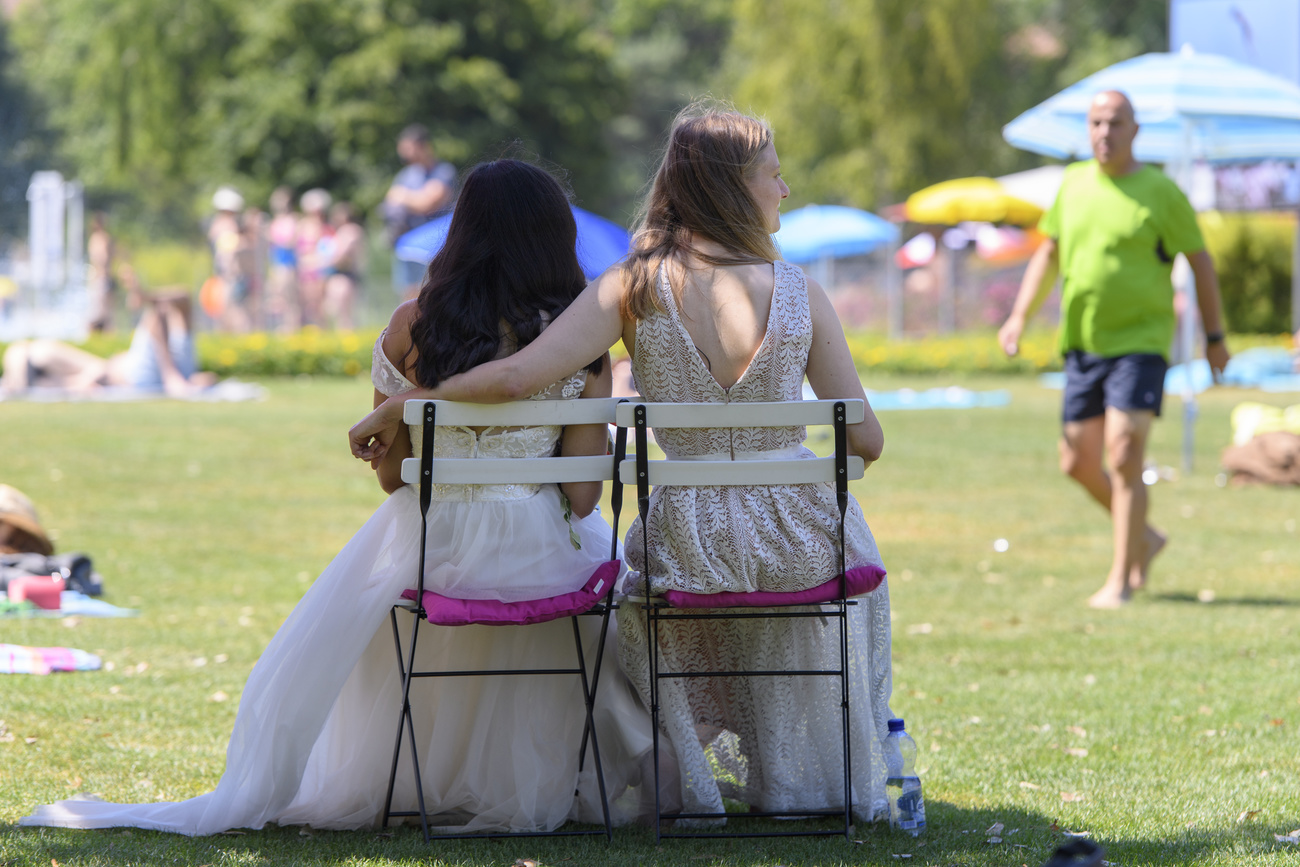
On September 26, Swiss voters will decide whether gays and lesbians have the right to marry and found a family. Those in favour of “marriage for all” are on a collision course with proponents of Christian values and the traditional family.
Switzerland is one of the four countries in Western Europe that bans marriage for homosexuals, along with Italy, Greece and Liechtenstein. As a result, Switzerland ranks just 23rd in a league table of LGBTIQ rights by ILGA-EuropeExternal link, slightly ahead of Estonia and Serbia.
On September 26, it will have an opportunity to make up ground regarding the rights of LGBTIQ people (lesbians, gays, bisexuals, transgender, intersex and queer). Voters will decide on a draft law to grant civil marriage to all, including access to medically assisted reproduction for female couples.
What’s at stake?
At present, two women or two men can only enter into a civil partnership in Switzerland. Every year, about 700 couples take this step to recognise their relationship.
Civil partners benefit in many ways from the same rights and duties as married couples. They can choose to share a surname, they are protected from termination in rental agreements, and they are eligible to inherit from their partner or to benefit from their pension. Since 2018, people in same-sex couples can also adopt their partner’s child.
So what will change with marriage for all? If the people vote in favour on September 26, married same-sex couples will also be able to adopt a child together. If one of the partners is foreign, he or she can benefit from a shorter and less expensive naturalisation process.
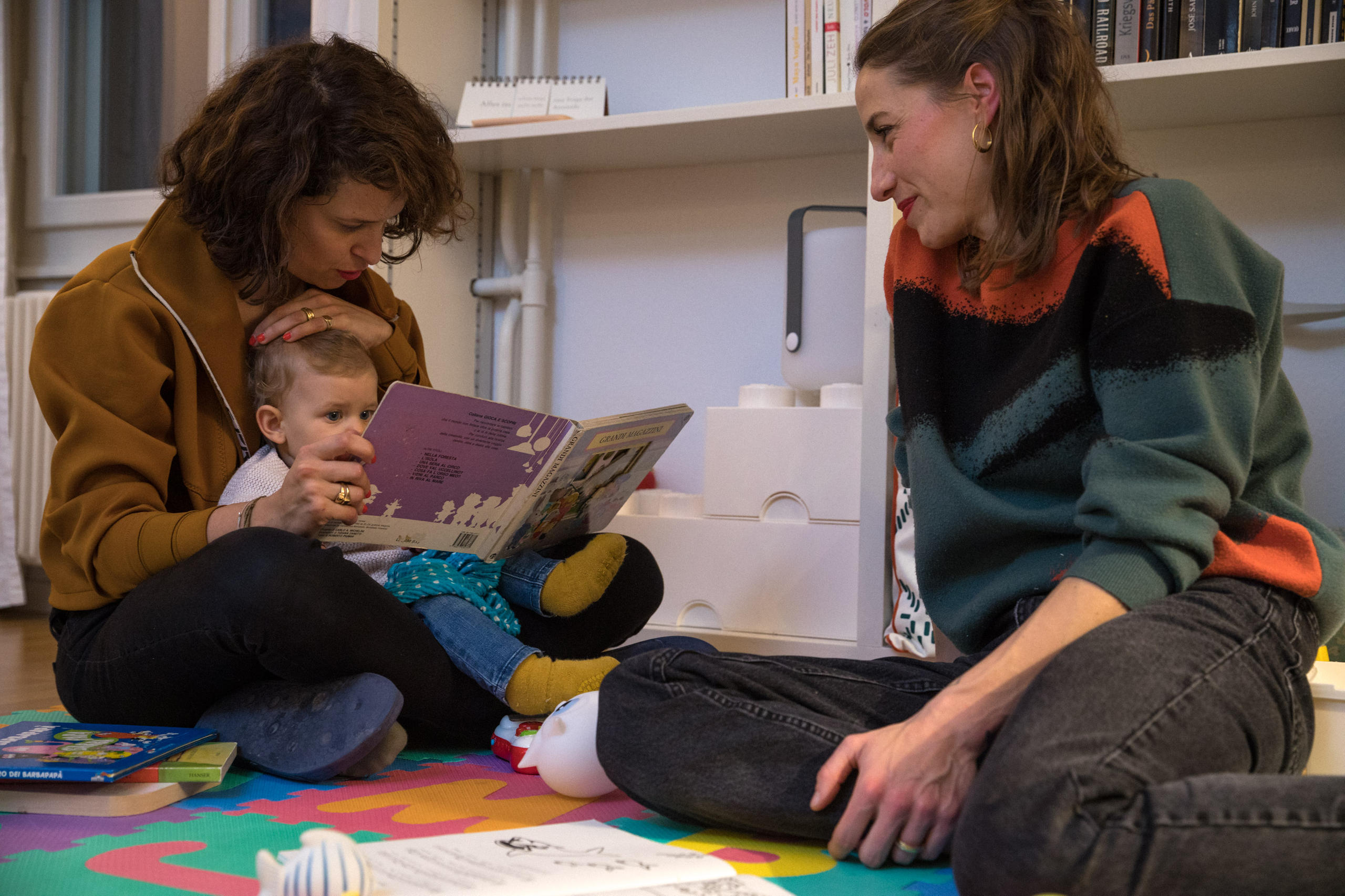
More
‘Marriage for all’ brings hope for rainbow families
Married lesbians will also have access to Swiss sperm donations. As Swiss law bans anonymous donations, the child will have the option to find out the identity of the donor at the age of 18, and the two women will be recognised as mothers from birth. However, if they choose a sperm bank abroad, only the biological mother will be recognised.
As in most European countries, surrogacy or egg donation is illegal in Switzerland. So there is no question of male couples gaining access to a surrogate mother.
The parliamentary work on this project lasted seven years. It was launched in 2013 by a parliamentary initiative from the centrist Liberal Green Party. Several versions of the text were debated by lawmakers before parliament in December 2020 accepted an amendment to the civil code to legalise marriage between two women or two men.
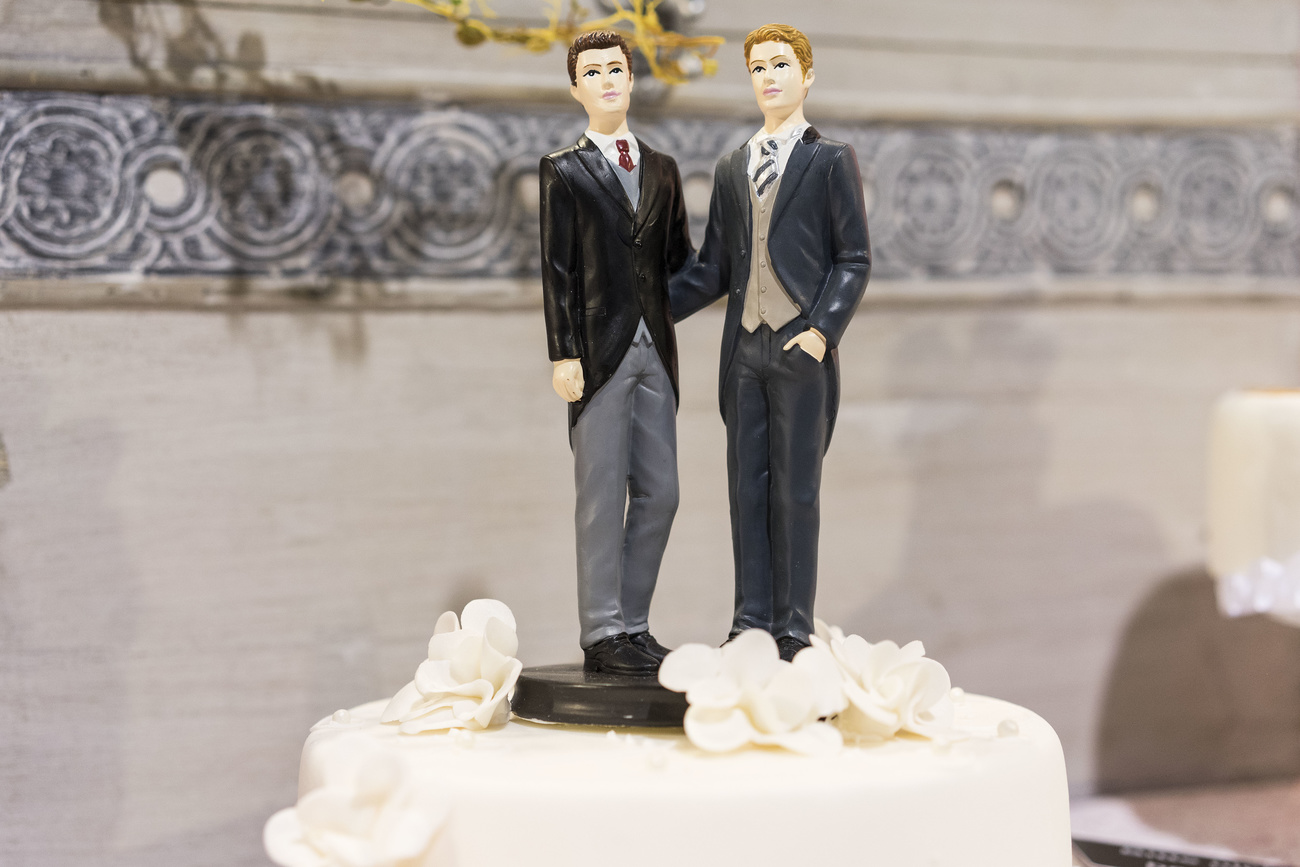
More
Parliament takes historic step for same-sex marriage
What will become of civil partnership?
A yes to marriage for all would signal the end for new civil partnerships, which are exclusively for homosexuals. Same-sex couples would have the option of converting their partnership into marriage or continuing as they are. However, no new civil partnerships would be permitted.
To replace this kind of union, the federal administration is working on a civil solidarity pact similar to the French model. The idea is to create a structure with less extensive legal consequences than marriage for both heterosexual and gay couples.
What are the arguments in favour of the law?
For advocates of “marriage for all,” it is above all about eliminating inequality. With universal marriage, all couples will have the same rights and the same obligations. “It’s not up to the state to cast judgment on the private and family life of this country’s inhabitants, nor to dictate how they should organise it,” Justice Minister Karin Keller-Sutter said at the launch of the campaign.
The plan also adapts the law to the reality of Swiss society, advocates say. They argue that universal marriage offers better legal protection to the thousands of children who already live with two mothers or two fathers.
Granting marriage to gays and lesbians also has symbolic value. “It’s a question of long-awaited legal recognition of love between people of the same sex,” the National Committee of Civil Marriage for All writes. It points out that in countries that have introduced universal marriage, suicide rates have declined in the LGBTIQ community and prejudices against them have receded, according to several studies.
What are the arguments against?
The referendum committee’s arguments are centred on the traditional position occupied by marriage in society and the roles of men and women at the heart of it.
“Introducing universal marriage is a social and political rupture that nullifies the historic definition of marriage, understood as a lasting union between a man and a woman,” opponents write. They believe that “marriage is and must remain a natural union between a man and a woman, and we must protect it”.
Access to sperm donations for female couples also upsets the opponents, who believe that this option forfeits the best interests of the child. They also fear that these changes will lead to the legalisation of surrogacy.
On a more technical level, the referendum committee disapproves of the introduction of universal marriage by a simple legislative amendment with no change to the constitution.
Why is the public voting on it?
After parliament adopted universal marriage, a cross-party committee – mainly comprising representatives of the right-wing Swiss People’s Party and the Federal Democratic Union, an ultra-conservative Christian party – launched a petition for a referendum. They successfully gathered more than 50,000 signatures necessary to push their proposal through and get a national vote. The right to veto a parliamentary decision is part of the Swiss system of direct democracy.
More
Who are the supporters and opponents of the initiative?
Civil marriage for same-sex couples enjoys widespread political support. With the exception of the People’s Party, all the governing parties support the project, as do the Greens and Liberal Greens.
A large proportion of the population also seems to have been won over to this societal change. In February 2020, a poll by the GFS Bern institute revealed that 80% of Swiss were in favour of same-sex marriage.

There is even some openness from religious quarters. The Federation of Swiss Protestant Churches already spoke out in favour of same-sex marriage on a civil level in November 2019. The Conference of Swiss Bishops and the Swiss Evangelical Network remain opposed to it, however.
What’s the global situation?
On April 1, 2001, the Netherlands became the first country in the world to legalise same-sex marriage. This year, exactly 20 years later, 29 countries authorised it. In almost all of these states homosexual couples can also become parents and adopt a child. In two decades, the right to same-sex marriage has been recognised in most Western countries – in Europe, in North and South America, but also in South Africa and Taiwan.
However, the picture is much darker in other parts of the world. Homosexuality is still largely repressed in Africa, Asia and the Middle East. Some 70 countries ban same-sex relations. Penalties range from torture to forced labour. In ten countries, homosexuality is punishable by death.
Translated from French by Catherine Hickley
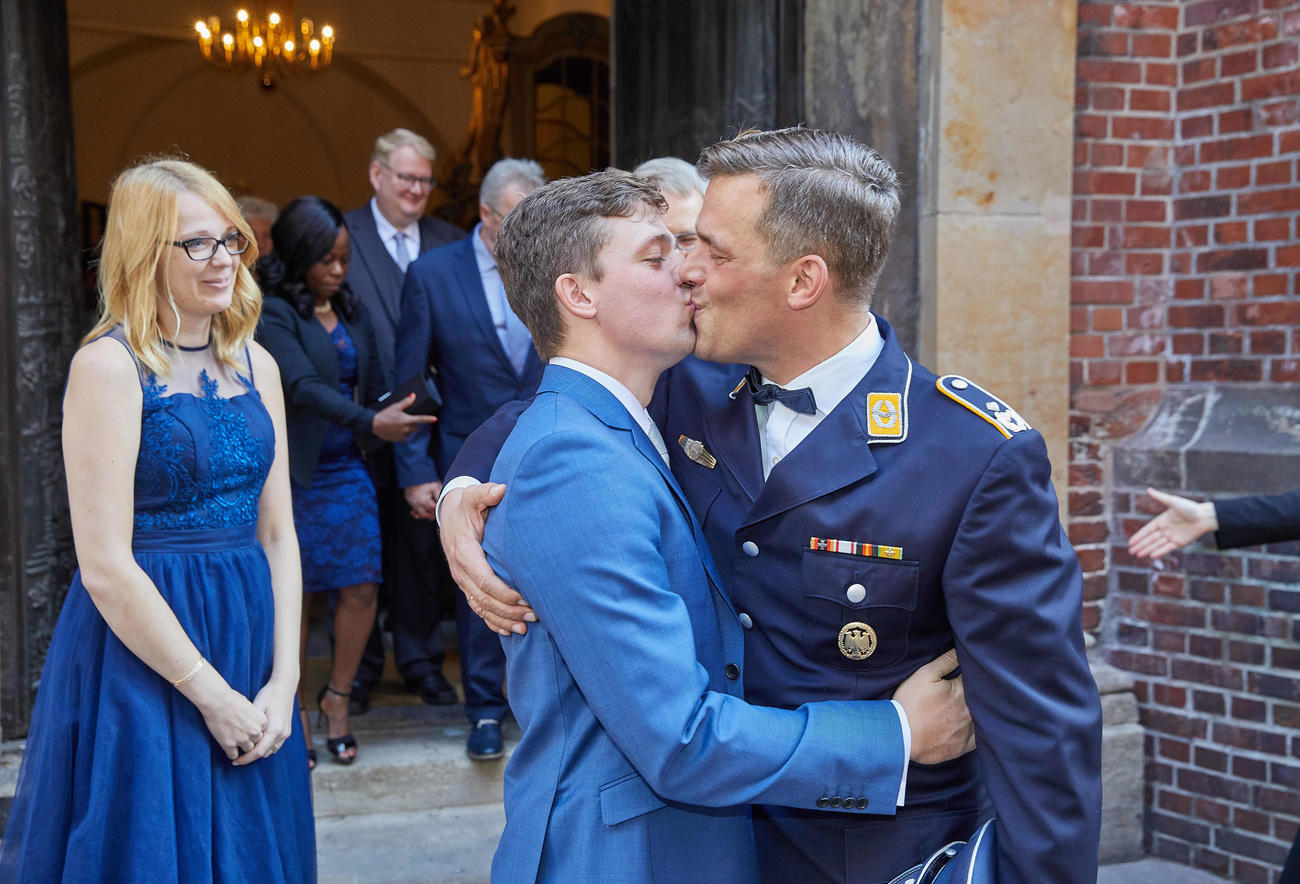
More
Survey shows broad Swiss support for same-sex marriage

In compliance with the JTI standards
More: SWI swissinfo.ch certified by the Journalism Trust Initiative










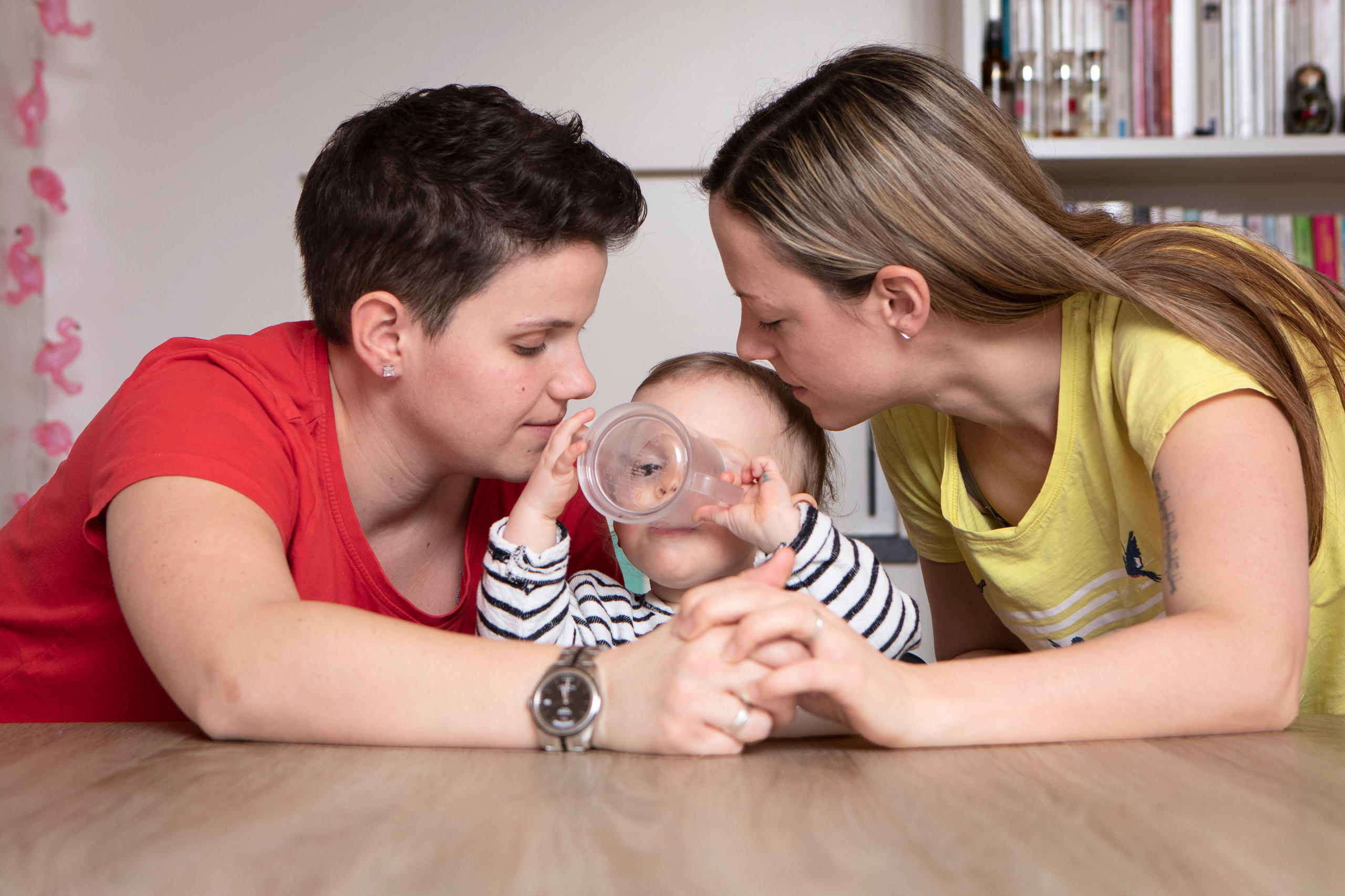

You can find an overview of ongoing debates with our journalists here . Please join us!
If you want to start a conversation about a topic raised in this article or want to report factual errors, email us at english@swissinfo.ch.